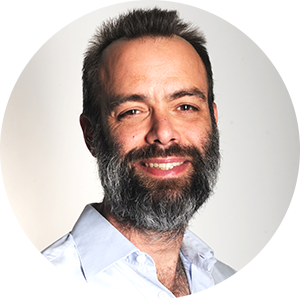DR. PATRICK MCGIVERN
Associate Professor
Email: patrickm@uow.edu.au
About Patrick:
My research includes projects in Philosophy of Science, Philosophy of Cognition and Philosophy of Medicine. In Philosophy of Science, I focus primarily on problems of explanation and modelling in science, and on related questions about emergence, reduction, and other inter-theoretic relations. These problems arise in physics, chemistry, neuroscience, cognitive science, biology, ecology and many other areas of science. I am particularly interested in the role that scale plays in these problems, and on the frequent need for ‘multi-scale’ models and explanations, involving combinations of perspectives from different spatial and temporal scales.
My work in Philosophy of Cognition also focuses on the significance of scale. Traditional concepts of cognition are often focused on relatively large-scale, complex creatures, such as humans and other mammals. I am interested in ways in which basic features of cognition such as agency and self-preservation might vary with scale, appearing quite differently in cases involving small-scale organisms such as bacteria.
In Philosophy of Medicine, my research focuses on concepts of health and disease. One aspect of this work is aimed at giving a multi-level account of these concepts, exploring how they inter-relate from the molecular level to the social level. Another aspect is concerned with examining the basic concepts of health and disease themselves and their connection with other concepts, such as harm.
You can find more at Patrick’s UOW Scholars profile.
DR. NICK BRANCAZIO
 Research Associate, Lab Co-founder
Research Associate, Lab Co-founder
Email: nick_brancazio@uow.edu.au
About Nick:
I’m a UOW PERL Fellow (Prioritizing Emerging Research Leaders) in HSI Philosophy at UOW. My research areas are the Philosophy of Science broadly, the Philosophy of Cognitive Science more specifically, and Feminist Theory. I specialize in non-reductive approaches to the philosophy of cognitive science and biology. My main interests are agency and inter-scale dynamics. I’m a co-founder of the Minimal Cognition project at the University of Wollongong, and have co-organized several conferences, a special issue, and published on minimal cognition. I have also published several papers on the feminist philosophy of e-cognition. You can find more on my research and teaching here: nickbrancazio.com
STUDENTS
Naomi Beecroft

PhD student
Email: nlb815@uowmail.edu.au
About Naomi:
My work applies embodied, enactive, and extended frameworks of cognition to implicit bias, arguing that both philosophy and psychology’s conventional understanding(s) of implicit bias are both theoretically and politically misguided. I consider materialist feminisms to be a natural political partner to e-cognition, and argue that together they can give us a new, better conception of bias that avoids the usual trappings of liberal, individualist, and empirically sketchy accounts.
Jimmy Lewis-Martin
PhD student
Email: jimmy@uowmail.edu.au
About Jimmy:
I am working on the ontology of group agents by extending the enactive theory of agency to groups in order to develop explanatory tools for addressing practical social and political problems. I argue that the enactive theory of agency more accurately defines agency than the other theories on offer. Because of this, it better explains the behaviours of group agents, which in turn allows us to better explain and potentially address the actions of groups. My other interests are the philosophy of medicine and political philosophy.
Danielle O’Neill
PhD student
Email: dmon858@uowmail.edu.au
About Danielle:
I majored in psychology and philosophy in my undergraduate studies. This background inspired my interest in the philosophy of medicine, which is now my research area. Specifically, I’m exploring the relationship between diagnosis and chronic illnesses. My research has been motivated by the disconnect between reported patient experience (of chronic illnesses) and our accounts of diagnosis.
Peter David O’Connor
![]()
PhD student
Email: pdoc956@uowmail.edu.au
About Peter:
Thesis Title: The Simple Brain Theory
FORMER STUDENTS
Russell Meyer

PhD student
Email: rmeyer@uow.edu.au
About Russell:
My thesis is thorough analysis and critique of neo-mechanism. It also builds an alternative account of dynamical explanation suited to investigating cognitive and biological phenomena. My other research interests are the sociocultural and narrative basis of scientific explanation; enactive cognition; and building an account of process metaphysics for life and mind. You can find more here: russelljamesmeyer.com
Anco Peeters
Graduated PhD student![]()
Website: ancopeeters.com
About Anco:
I’m a philosopher and cognitive scientist specialising in philosophy of mind and philosophy of technology. Patrick supervised my doctoral dissertation in which I developed a framework of mind–technology interaction from an embodied, enactive cognition perspective. Currently, I’m a postdoctoral research fellow at the Ruhr-University Bochum in Germany where I work on an embodied and constructivist view of episodic memory.
Paul Terry (Hons 2014)
Title: Ontological Commitments and Mathematical Objects
Abstract: When should we believe something exists? This is the question of ontological commitment. A natural answer to this question is that belief in statements about objects should entail belief in the existence of those objects. However this natural answer is problematic when we consider beliefs are about inaccessible objects. Inaccessible objects are unobservable, causal inert, non-spatiotemporally located and mind-and-language dependence. I call this the general problem of inaccessible commitments: that our natural answer to the question of ontological commitment seems to commit us to objects we have no access to. This problem is particularly sever in mathematics because one can give the following indispensability argument for mathematical objects: we ought to be ontologically committed to whatever is indispensable to our best scientific theories, and mathematics is indispensable to our best scientific theories, therefore we ought to be ontologically committed to mathematical objects. The focus of this thesis is to solve the problem of inaccessible commitments in mathematics. Thus, first I consider how one might accept the consequences of the indispensability argument: that mathematical statements are truly about real mathematical objects. There are three positions I consider here. physicalism (mathematical objects are physical), psychologism (mathematical objects are mental) and Platonism (mathematical objects are abstract). However all of these views have problems they fail to overcome. I next consider how one might reject the indispensability argument by nominalising our scientific theories. That is, by rejecting that mathematics is indispensable to science. I outline this strategy and illustrate how it is supposed to work in the case of Newtonian gravitation theory. However it is unclear how this strategy can be extended to quantum mechanics. Finally, I consider how one might reject the indispensability argument by fictionalising our scientific theories. That is, by rejecting that the indispensability of mathematics necessarily leads to ontological commitments. I endorse a position that holds that we should understand the indispensability argument in terms of belief. Thus I argue that one is able to reject the indispensability argument for mathematical objects, because it is not necessary to believe existential mathematical claims. Therefore, I argue that there need not be any problem of inaccessible commitments in mathematics, because we are not driven to ontological commitment to abstract mathematical objects.
Robert Keys (Hons 2013)
Title: Antirealism and Perceptual Experience
Abstract: Perception is the process by which organisms become aware of and respond to their environments. As conscious perceivers, we have experiences involving our perceptions. This thesis concerns human experience in our perceptual lives. Perceptual experience certainly seems to be a relation between perceiver and external objects. However, when we reduce our understanding of perception to the physiological processes that lead to its actualisation (as we must), the demarcation of ‘internal experience’ and ‘external world’, which appears plainly in our perceptual experience, becomes problematic to define. The relation of ‘inner’ experience to ‘outer’ objects is a foundational problem for epistemology and perception in general. If our own presentation of the external world is contingent upon our physiological processes, and perhaps even other influences such as language and cognition, the problem of realism emerges: to what extent may we regard objects in our own perception to be objects in the world? In this thesis I will consider firstly a direct realist approach, the view that our perceptual experience consists of objects as they are independent of our perception of them. Examination of this view leads to further problems of perception as we must account for the possibility of illusions, hallucinations, perceptual constancies, and perceptual variances which are at odds with a ‘direct’ theory of perception. The indirect realist aims to overcome these problems by arguing that in perception, we are aware of some mind-dependent entity which acts as a proxy for the entity that is in the world. This view faces a problem in that it makes an ontological commitment to an entity that can suffice as a representation of external objects. The alternative I argue for is an antirealist conception of perceptual experience, which I present as a viable alternative to various types of realism. Perceptual antirealism can be regarded as a happy medium between immaterialist idealism and indirect realism, in that objects in perception are mind-dependent, but that the objects that cause our perceptual experience are afforded mind-independence. As an alternative to perceptual realism, perceptual antirealism gives us a framework by which we can examine what aspects of physiological processes have an affect on how the world appears in subjective experience, and can better deal with issues such as perspectival variance and other findings in experimental perceptual psychology. In my arguments for the antirealist view, I present a defence against the claim that antirealism is at odds with common sense, and further explain how antirealism can overcome the indirect realist’s commitment to a new class of representational entities.
Dylan Reynolds (Hons 2011)
Title: Narrative and the Abstractionist Conception of Self: a Critical Appraisal
Abstract: The aim of this thesis is to suggest that how we conceive of what narratives are and how they are formed can and should have a major impact on how we approach issues regarding the narrative self. I argue this because I believe that if we wish to understand what implications arise from insisting that the self is a narrative construct, then we need to have an appreciation of how ‘self-constituting narratives’ are developed. I begin by outlining what the characteristics of narrative are and suggest the narratives which constitute the self are composed via acts of discursive collaboration. I then examine what is collaborative model of narrative self constitution implies in relation to the ‘Abstractionist’ account of narrative selfhood, as articulated by Daniel Dennett and J. David Velleman. I argue that if the self is constituted via collaborative means then a) the narrative self may endure indefinitely and b) may not be controlled by the individual whose self it is.